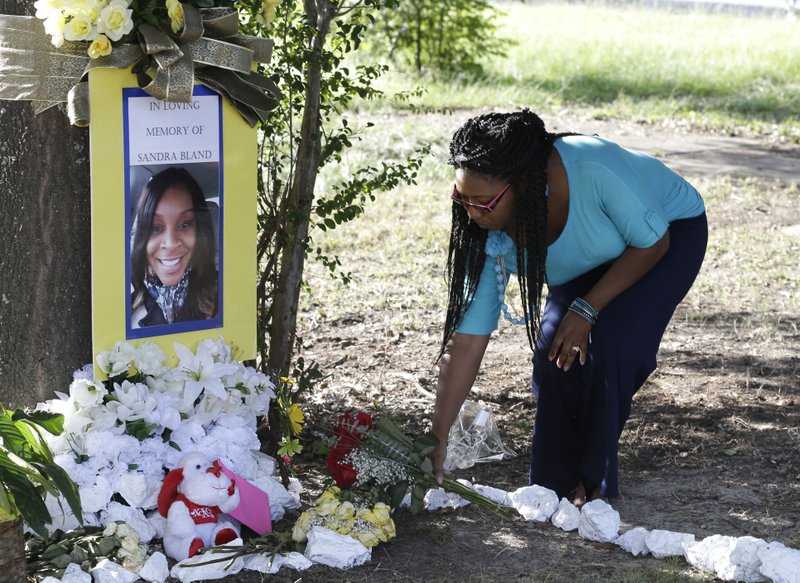AUSTIN, Texas -- The sister of Sandra Bland, a black woman found dead in a Texas jail after a confrontational traffic stop with a white state trooper, said it is "gut-wrenching" that lawmakers stripped police overhauls from a bill named after her sibling and are now pushing a weakened compromise that "painfully misses the mark."
Bland's death in 2015 was a national flash point in the Black Lives Matter movement. The 28-year-old Chicago woman was stopped near Houston for not signaling a lane change, forcibly pulled from her car and found dead in jail days later.
A leaner Sandra Bland Act enters the home stretch of the Texas Legislature far from the sweeping package of police accountability and anti-racial profiling measures originally filed in March. In the face of opposition from law enforcement groups and Republicans, the bill was slimmed down and now mostly focuses on better jail training and mental health care access.
"What the bill does in its current state renders Sandy invisible," said Sharon Cooper, Bland's older sister, in an interview Friday night. "It's frustrating and gut-wrenching."
Saying she was speaking on behalf of the Bland family, Cooper said the legislation as it now stands "isolates the very person it seeks to honor" and makes compromises at the expense of the family. "It painfully misses the mark for us," she said.
Cooper stopped short of saying Bland's name should be removed from the bill -- a move some frustrated black community organizers in Texas say they would welcome given the changes.
Democrats who carried the measure say they did the best they could while up against the political realities of the Republican-controlled Legislature. The bill unanimously cleared the Senate last week and must now clear the House before the Legislature adjourns May 29.
By any measure, the original bill would have changed policing in Texas by requiring a higher burden of proof for stopping and searching vehicles, counseling and training for officers who racially profile drivers. It also would've banned arrests over offenses that are punishable by a fine.
But the pared-down version is what Democratic state Sen. John Whitmire called "a mental health and awareness piece of legislation." Remaining are provisions that mandate more mental health training for jailers, heightened supervision of inmates and improved mental health care access. It would also require more de-escalation training for officers.
Authorities say Bland hanged herself in the Waller County jail with a plastic garbage bag three days after being pulled over in July 2015. Dashboard camera video shows Trooper Brian Encinia ordering Bland out of the car and drawing his stun gun while yelling, "I will light you up!"
Bland can later be heard screaming off-camera that the trooper was about to break her wrists. Authorities say Bland told a jailer during booking that she had previously tried to kill herself. Family, friends and activists have expressed skepticism that Bland committed suicide, which is one of the reasons organizers and others take issue with Bland's name being attached to what is now a mostly mental health bill.
Charley Wilkison, executive director of the Combined Law Enforcement Association of Texas, said the original version was overly broad and seen by rank-and-file officers as a punitive attack.
"It was a straight-out attack on all law enforcement over a tragic suicide in a county jail," Wilkison said. "Appropriately, now we're talking about mental health diversion."
Democratic state Rep. Garnet Coleman said dissatisfied activists should see the bill he originally filed as a road map for future changes. He did not immediately return a text message late Friday about Cooper's displeasure with the changes.
"All I can say to them is that's what we were trying to do and keep everybody safe. But clearly the police unions, associations are very good at what they do," Coleman said. "The whole reason for filing it with everything in it was for there to be a pathway for the future."
Fatima Mann, who helped organize a march for Bland in Austin and supported the original bill, said what's left leaves out the fact that Bland shouldn't have gone to jail in the first place."
A Section on 05/14/2017

